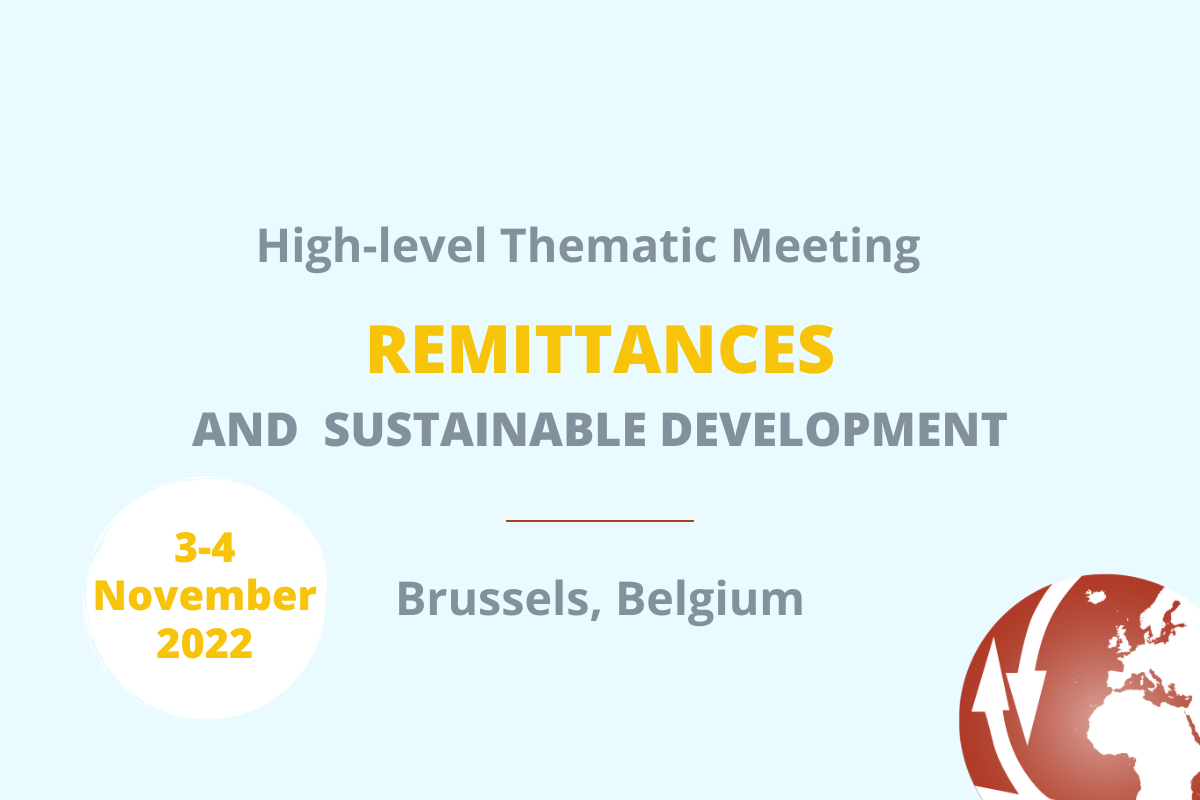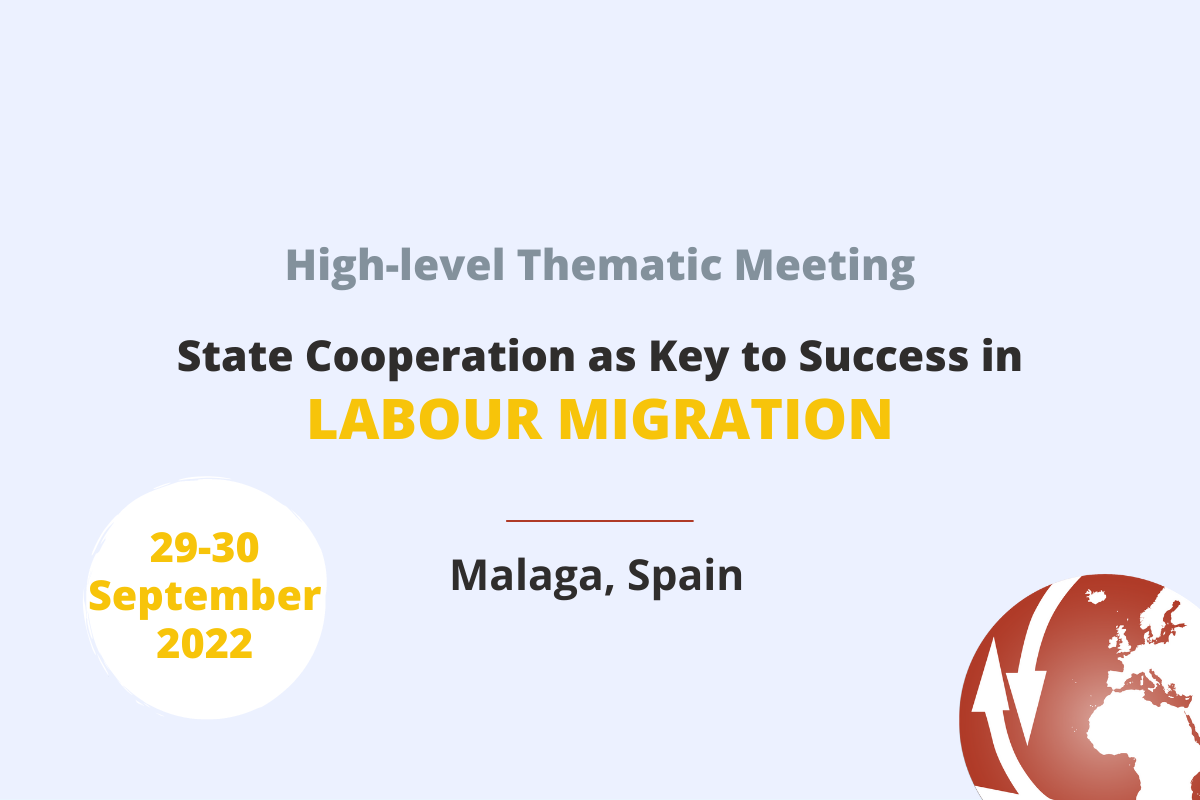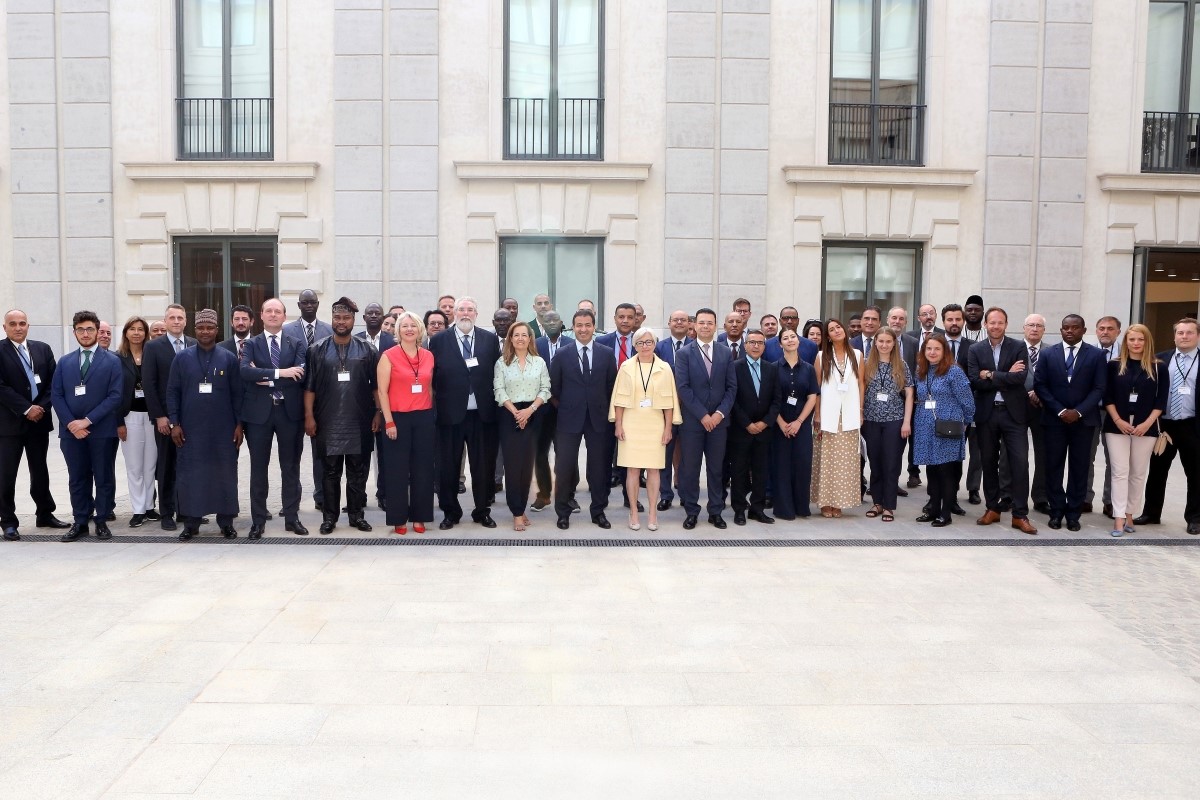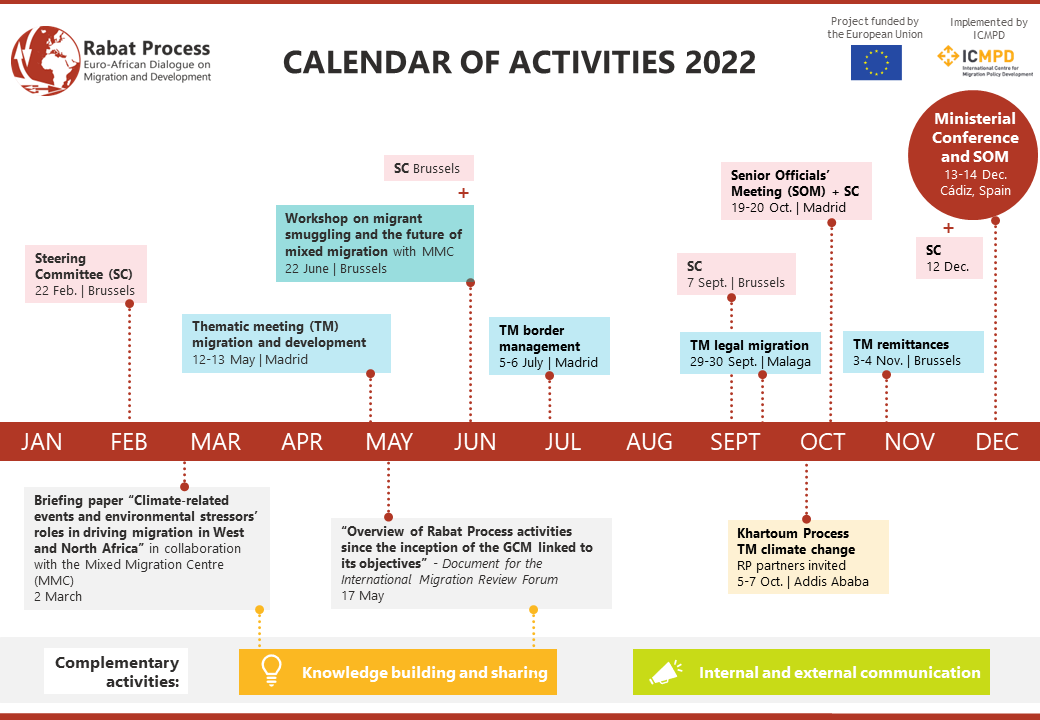On 3 and 4 November 2022, a High-Level Thematic Meeting on “Remittances and Sustainable Development” will take place in Brussels, co-chaired by Belgium and Ghana.
Remittances can be an important source to fund families’ daily needs, as well as a major source of foreign exchange inflow. The importance of remittances for achieving sustainable development is undeniable. Already in 2019, Rabat Process partners met in Abuja, Nigeria, for a workshop specifically focused on Diaspora Remittances and Sustainable Development (2019). Since then, the world has undergone major change. During the pandemic of COVID-19, many traditional channels for money transfers were no longer available, many places to cash-out remittances were closed. This time, Rabat Process partners will be joined in Brussels by their counterparts of the Khartoum Process, a Dialogue focusing on the migration route between the Horn of Africa and Europe, who will share experiences from their regions.
Sharing knowledge and taking stock of the impact of asymmetrical shocks
The representatives of the partner countries and organisations will be joined by experts from the public and private sectors. The meeting shall be a mutual learning experience that will improve the technical understanding of remittances and contribute to the replication of successful initiatives. It will also be the occasion to take stock of asymmetrical shocks and how they have impacted the reality of remittances in Rabat Process partner countries. Concrete initiatives involving diaspora organisations and instruments to reduce transfer costs will also be presented and discussed.
The strategic frameworks addressed by this meeting
The meeting addresses Domain 1, Objective 1, of the Marrakesh Action Plan, which is the current multi-annual strategic framework of the Rabat Process:
“Maximising the positive development impact of regular migration”
Objective 1, Marrakesh Action Plan
The meeting also aligns with the commitments made by the Rabat Process and Khartoum Process partners in 2015 in the Joint Valletta Action Plan (JVAP), in particular regarding the promotion of cheaper, safer, legally compliant and faster transfers of remittances and the facilitation of productive domestic investments, as well as the role played by diaspora in the countries of origin. The meeting also takes the African Union's Agenda 2063 into consideration, as well as the Global Compact for Safe, Orderly and Regular Migration.






